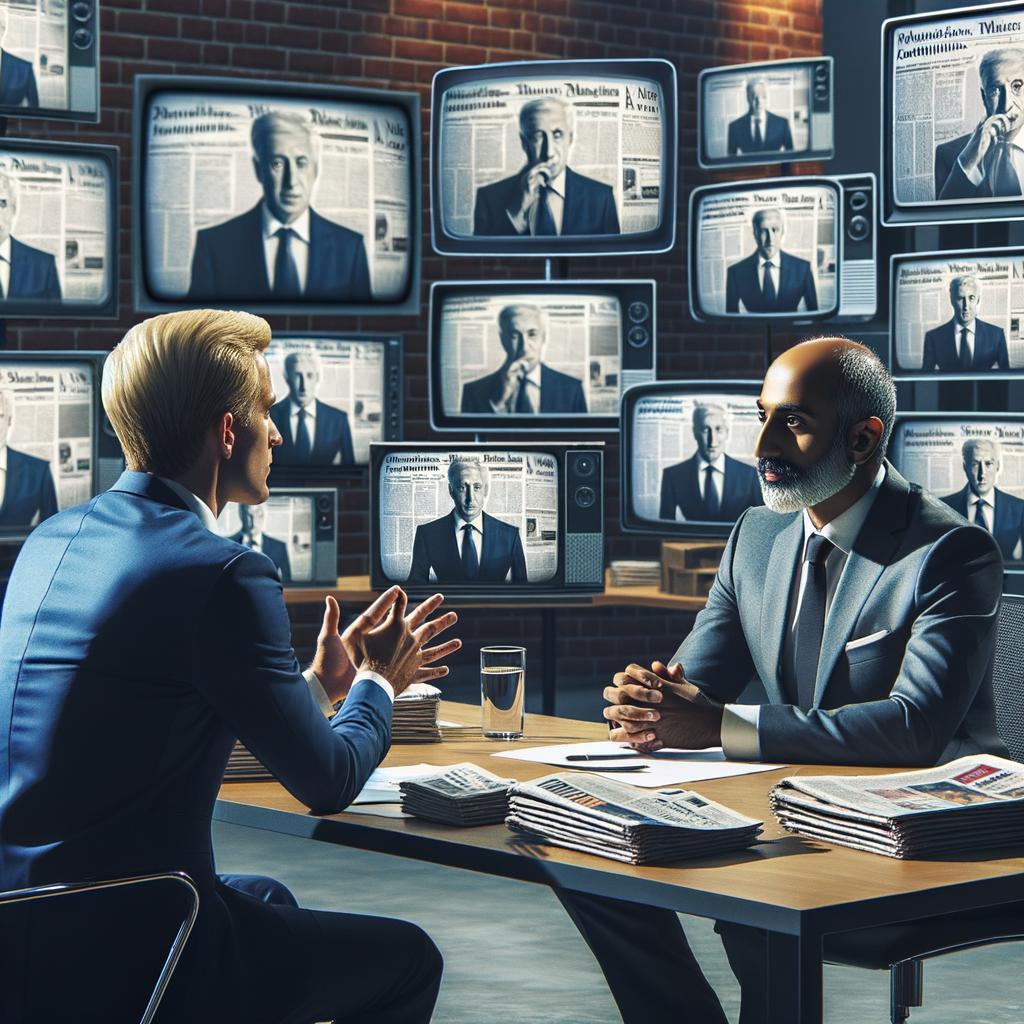In today’s rapidly evolving media landscape, the narratives surrounding powerful figures often become entangled in a web of bias and sensationalism. This is particularly evident in the coverage of two of the most polarizing figures of our time: Donald Trump and Elon Musk. Both men have not only reshaped their respective fields—politics and technology—but have also become focal points of public discourse, often through the lens of a media narrative that sways public perception. In this article, we will delve into the challenges of overcoming media bias as it pertains to Trump and Musk, examining recent headlines that illustrate the divergence between fact and opinion. By unpacking the intricacies of media portrayal, we aim to equip readers with the tools to critically assess these narratives, encouraging a more nuanced understanding of how personal biases can distort the truth. Join us as we explore the implications of media framing and the importance of seeking clarity amidst the noise, ensuring that we can better engage with the realities of these influential leaders and their impact on society.
In the current media landscape, narratives surrounding influential figures like Donald Trump and Elon Musk often present a skewed portrayal that can misguide public perception. From their policy decisions to their M&A strategies, coverage frequently emphasizes controversies while downplaying achievements. This selective reporting not only distorts the true influence these men wield but also impacts how their contributions to innovation and governance are recognized. It is essential to identify patterns of bias in reporting that seek to frame their legacies negatively. Understanding these trends is a key strategy in developing a more nuanced perspective on their roles in society.
To effectively navigate and counteract media bias, individuals should employ several practical strategies:
- Diverse Sources: Regularly consume news from a wide range of outlets to get a balanced view.
- Fact-Checking: Utilize reputable fact-checking websites to verify claims made about these figures.
- Engage critically: Analyze the language and tone used in coverage. Is it objective or sensationalized?
- Discuss openly: Engage in open discussions with those holding different viewpoints to foster understanding.
For an illustrative comparison of media portrayal, consider the following table:
| Figure | Media Coverage Focus | Public Contributions Highlighted |
|---|---|---|
| Donald Trump | Controversies, Legal Issues | Economic Growth, Job Creation |
| Elon Musk | Tweets, Personal Life | Technological Innovation, Space Exploration |
To Wrap It Up
the relationship between Donald Trump and Elon Musk offers a compelling case study in overcoming media bias. As both figures navigate the complex landscape of public opinion and media scrutiny, their ability to harness the power of digital communication underscores the importance of critical engagement with news narratives. By fostering their own platforms and directly connecting with audiences, they challenge traditional media mechanisms that often distort realities. This evolving dynamic not only reshapes our understanding of influence in the age of information but also empowers individuals to seek out diverse perspectives. As consumers of news, it is essential for us to remain vigilant and discerning, recognizing the biases that can color reporting on polarizing figures. By doing so, we can contribute to a more balanced discourse and hold media accountable, ultimately leading to a richer, more informed public dialogue. Embracing this challenge is vital not just for Trump and Musk, but for all who seek to thrive in an increasingly fragmented media landscape.
